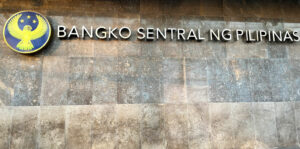THE BANGKO SENTRAL ng Pilipinas (BSP) has launched the BSP e-Learning Academy (BELA), which aims to help Filipinos improve their financial literacy.
“BELA offers a free and interactive platform for learning, breaking down traditional barriers and making education accessible to all,” BSP Managing Director Charina B. De Vera-Yap said at a briefing on Monday.
It offers modules that cover financial planning, budgeting, saving and debt management.
The BSP is also working on modules on the basics of investing, fraud prevention, consumer protection, and personal equity and retirement account, among others.
Students will be able to connect with financial education partners and interact with instructors through fora via messaging or video conferencing, among other media.
The platform is set to be launched soon, the BSP said.
Meanwhile, the central bank also announced other financial education programs and initiatives.
On Monday, the BSP signed a memorandum of agreement with the Department of Social Welfare and Development (DSWD) and BDO Foundation. In 2020, the central bank already collaborated with the DSWD to create a financial consumer protection module for Pantawid Pamilyang Pilipino Program (4Ps).
“This year, we are expanding efforts to include DSWD employees and local social welfare officers. By equipping our public servants with essential financial knowledge and skills, we aim to enhance their ability to serve the nation and contribute to a prosperous future,” Ms. De Vera-Yap said.
The BSP is also enhancing its current partnership with the Bureau of Fisheries and Aquatic Resources and Agricultural Credit Policy Council, along with the BDO Foundation, on their program that created “innovative financial education games” that seek to boost the financial literacy of agri-workers. The central bank is expanding this partnership to include the entire Department of Agriculture to reach more farmers and fisherfolk, she added.
It has also signed a memorandum of understanding with the Credit Card Association of the Philippines to promote the responsible use of credit. — Luisa Maria Jacinta C. Jocson
